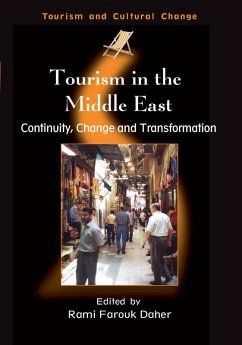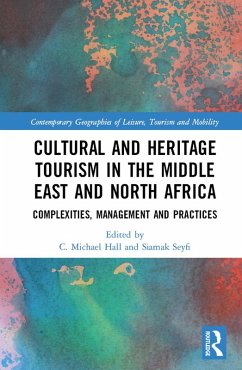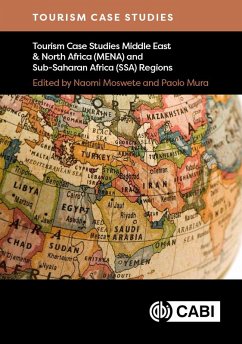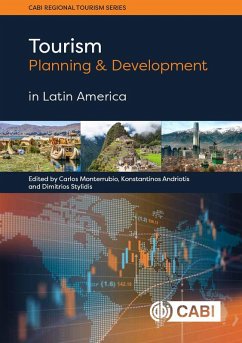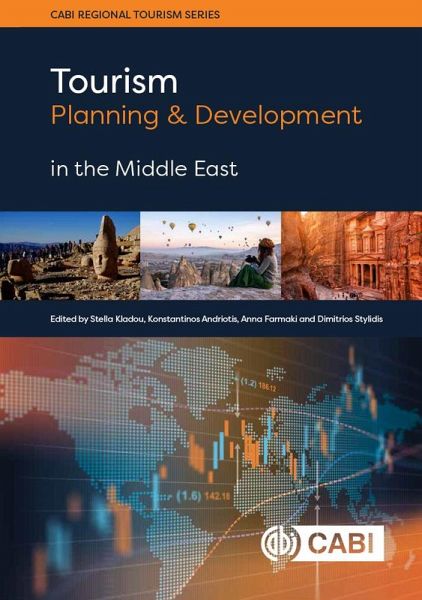
Tourism Planning and Development in the Middle East (eBook, ePUB)
Versandkostenfrei!
Sofort per Download lieferbar
99,95 €
inkl. MwSt.
Weitere Ausgaben:

PAYBACK Punkte
50 °P sammeln!
Given the historical and cultural richness of countries in the Middle East region, as well as the economic development many have exhibited in recent years, tourism planning and development gains much significance for both scholars and practitioners. Turbulence, conflicts and crises exhibited in the area add further dimensions that need to be incorporated in tourism strategies and planning, and be taken into consideration by experts at an institutional, corporate and educational level. Furthermore, in order to effectively deal with aspects of sustainability, visions and strategies in the region...
Given the historical and cultural richness of countries in the Middle East region, as well as the economic development many have exhibited in recent years, tourism planning and development gains much significance for both scholars and practitioners. Turbulence, conflicts and crises exhibited in the area add further dimensions that need to be incorporated in tourism strategies and planning, and be taken into consideration by experts at an institutional, corporate and educational level. Furthermore, in order to effectively deal with aspects of sustainability, visions and strategies in the region need to build upon good practices. As a result, a greater understanding is required of the factors influencing decision-making on tourism matters as well as on the impacts and implications of sustainable tourism development. This book, written by an international team of experts, addresses the need to examine tourism development and planning in the Middle East from a sustainability perspective by embracing case studies and examples from the region. Through its collection of chapters, the book considers tourism planning and development from the economic, socio-cultural, environmental and regulatory perspectives of sustainability. Thus, the book advances understandings of the positive and negative impacts of tourism development as well as how turbulence, crisis, synergies and the top-down and bottom-up approaches to tourism development are connected to different problems and implications for local communities, the region and the relationship of the Middle East with the rest of the world. An essential resource for tourism practitioners, decision-makers in private and public organisations, government bodies and consultants, not only from the Middle East, but for all those who want an encompassing view of global tourism.
Dieser Download kann aus rechtlichen Gründen nur mit Rechnungsadresse in A, D ausgeliefert werden.




